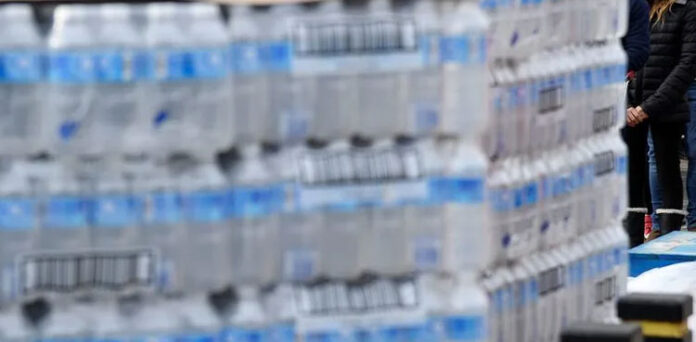Britain’s regulator told water companies they needed to fix leaks and cut sewage spills without raising bills as much as they had wanted, prompting industry criticism it was failing to get to grips with the mounting crisis.
The trade-off between price hikes, private investment and cleaner rivers amid a funding crisis and public anger over pollution is a test for the new Labour government, as the biggest supplier Thames Water teeters on the brink of financial collapse and could need to be nationalised.
Over the next five years, regulator Ofwat said it would allow companies to increase average bills by 21%, or 94 pounds ($121), to fund an 88 billion pounds infrastructure upgrade.
The water companies said that was not enough to tackle sewage spills, fix leaking pipes and increase capacity for a growing population. They had wanted to raise bills by an average of 33%, to invest 105 billion pounds.
Britain’s water industry has been in the firing line over the amount of sewage dumped in its waterways, with critics saying the companies have under-invested for decades while taking out billions of pounds in dividends and paying large bonuses to executives.
‘MINIMUM ASK ON CUSTOMERS’
Ofwat boss David Black told Times Radio the system needs sustained improvements “but it does need to be done in a way that puts the minimum ask on customers that’s possible.”
He said the plan would cut sewage spills by 44% by 2030.
Industry body Water UK slammed Ofwat’s proposals, accusing it of failing to tackle crumbling pipes and sewage spills.
“For far too long, Ofwat has failed to be realistic about the levels of investment needed and what it will take to deliver and maintain necessANN(Asian News Network) infrastructure,” a spokesperson said.
Thames Water, at the centre of the debate about a water industry which was privatised in 1989, wanted to hike bills by a total of 191 pounds over five years, but Ofwat said it would allow a rise of 99 pounds.
The company said its original plan had been “ambitious, deliverable, financeable and investible”. It will now provide more evidence before the regulator’s final decision in December.
Struggling under 15 billion pounds of debt, Thames said on Tuesday it would run out of money next year if it did not raise 3.25 billion pounds of equity.
GOVERNMENT REFORM
Environment minister Steve Reed, appointed after Britain’s July 4 election, ordered Ofwat to ensure new funding was ringfenced and not spent on bonuses or dividends.
Reed, who will meet water bosses later on Thursday, said he would outline steps in the next months to reform the sector and restore British “rivers, lakes and seas to good health.”
The crisis poses a challenge for new Prime Minister Keir Starmer who wants to boost private investment in Britain, with investors looking at water as a test case.
Ofwat set the allowed rate of return paid to investors of water companies at 3.72%, indexed to inflation, saying that would be adequate to attract investment.
It imposed a new “turnaround oversight regime” on Thames, requiring it to provide regular updates on progress.
Ofwat’s Black told reporters that in time, Thames Water could consider breaking itself up or floating on public markets, but said neither was an immediate solution.
Hours before Ofwat’s announcement, credit rating firm S&P Global warned it could downgrade Thames’ Class A and B debt to ‘junk’ ratings, making them uninvestible for big pension funds.
Ofwat will publish its final decision on bills and investment on Dec. 19. The companies can refer their case to the competition regulator if they cannot reach agreement with Ofwat.
($1 = 0.7777 pounds)
